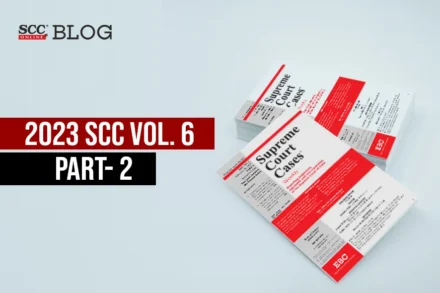
2023 SCC Vol. 6 Part 2
Power of Indian Courts to modify an Arbitral Award: This article submits that the courts ought to have power to modify the

Power of Indian Courts to modify an Arbitral Award: This article submits that the courts ought to have power to modify the
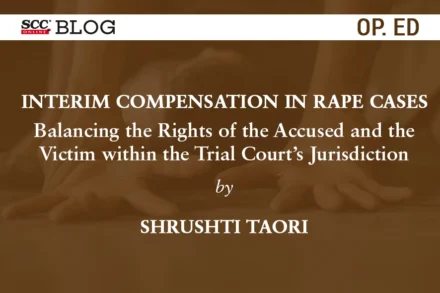
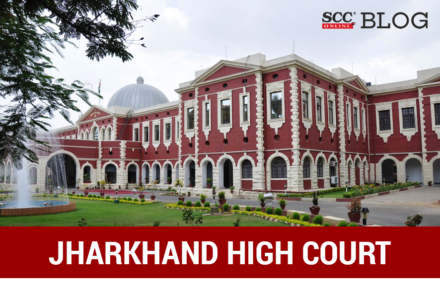
Jharkhand High Court commented that the State Police’s lackadaisical attitude to arrest anyone and put him in custody made the petitioner suffer humiliation, who was having a bright career and completed SSC exam.
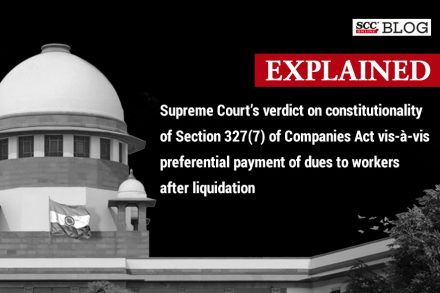
The Supreme Court said that it cannot adopt a doctrinaire approach. Some sacrifices have to be always made for the greater good, and unless such sacrifices are prima facie apparent and ex facie harsh and unequitable as to classify as manifestly arbitrary, these would not be interfered with by the court. Thus, no priority can be given to workers’ dues after liquidation of the company under the IBC.
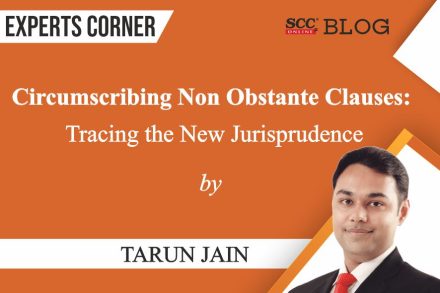
by Tarun Jain†
Cite as: 2023 SCC OnLine Blog Exp 52
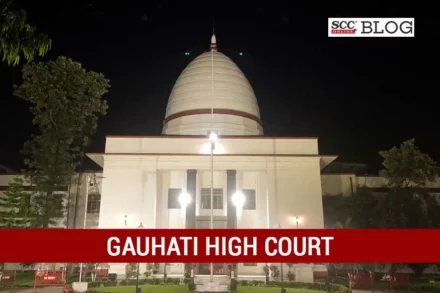
‘It is unfortunate to notice that a trend has been set to file applications under Article 226 of the Constitution at the drop of hat. Numerous cases has been filled with imaginary and very trivial causes of action. The court is of the opinion that such trend should be nipped in the bud and filling of writ petition of this nature has to be discouraged.’
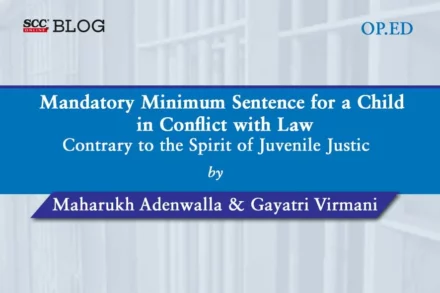
by Maharukh Adenwalla* and Gayatri Virmani**
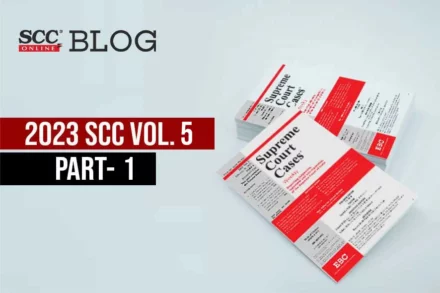
Constitution of India — Arts. 15(6) and 16(6) — Economic Disabilities or Economic Backwardness Criterion: Economic disabilities or economic backwardness, held (per
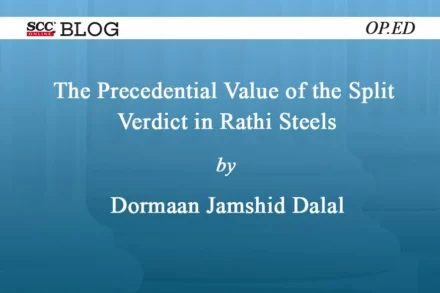
by Dormaan Jamshid Dalal†
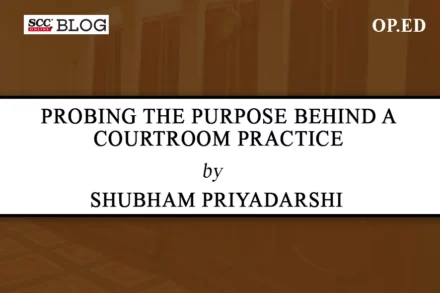
by Shubham Priyadarshi*
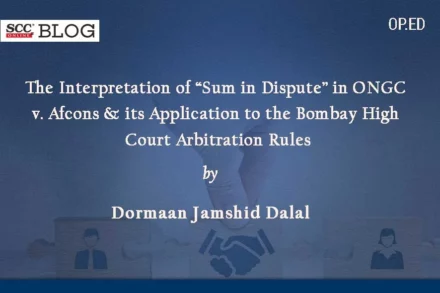
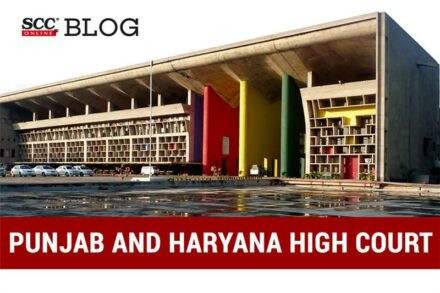
“Person who does not do equity with others and even to the life companion, cannot approach the Court to seek approval of his relation under the umbrella of Article 21 of the Constitution of India.”
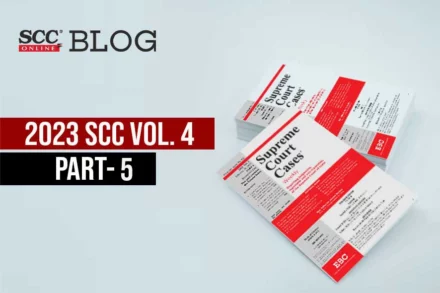
Civil Procedure Code, 1908 — Or. 9 R. 13 r/w S. 17 of the Provincial Small Cause Courts Act, 1887 — Ex
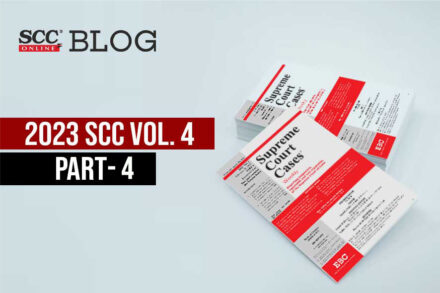
Constitution of India — Art. 226 — Maintainability of writ petition: A writ under Art. 226 against a private educational institute would
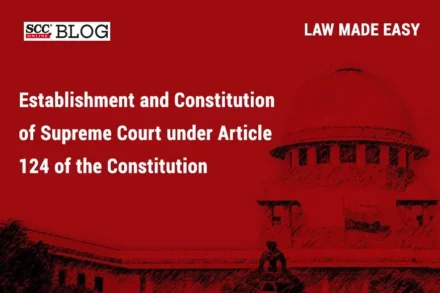
The makers of the Constitution of India advocated for Separation of Power and demarcated the limits, roles and functions of every organ
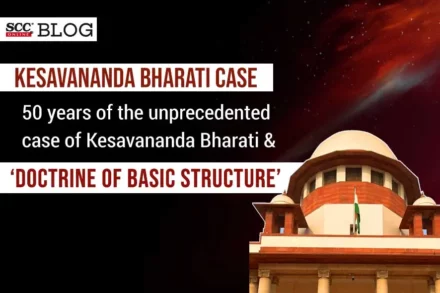
Here is snippet on the evolution of ‘Doctrine of Basic Structure' in the Independent India and how the biggest legal battle continued between the Judiciary and the Legislature, as the landmark case of Kesavananda Bharati v State of Kerela (1973) 4 SCC 225 enters its Golden Jubilee year.
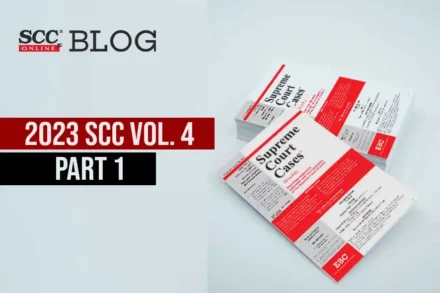
Constitution of India — Arts. 19(1)(a) & (2) and Pt. III, Preamble & Art. 51-A — Right to freedom of speech and
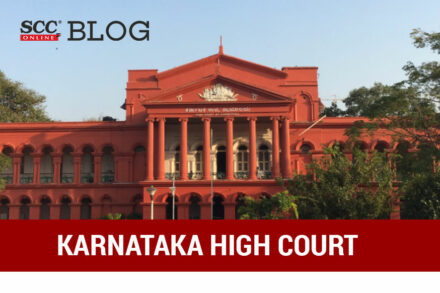
Coming down furiously over the respondents Karnataka High Court reprimanded them for indulging in red-tapism and being apathetic to the educational needs of the children.
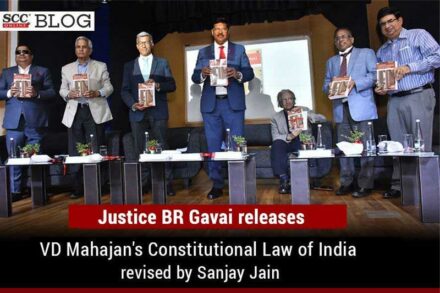
Eastern Book Company organized the book launch of VD Mahajan’s Constitutional Law of India revised by Sanjay Jain which was released by Supreme Court’s Justice BR Gavai in the presence of Professor Upendra Baxi, Professor MP Singh, Senior Advocate KV Viswanathan and Senior Advocate Gopal Sankaranarayanan and other legal luminaries.
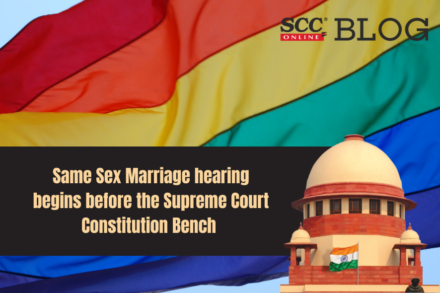
Petitioner contended that they were entitled to the Fundamental Right to marry which was entrenched in the Constitution which includes the choice of a marital partner. Neither the State nor Society could intrude into the domain of individual right to pursue a way of life which were central to their identity and autonomy.